Michio Kaku
出生 : 1947-01-24, San Jose, California, USA

A Tear in the Sky takes you on an unprecedented journey into the UAP/UFO phenomenon as we follow a team of world-renowned experts, scientists, and military personnel who will attempt to unravel the UAP/UFO mysteries using state-of-the-art, military-grade equipment, and technology. While the UFO phenomenon has existed since the dawn of recorded history, very little scientific research is accessible to the public. Most of the serious research is conducted by various governments and militaries across the planet; this film is a documentary on how a team of military veterans, scientists, and researchers come together and launch an investigation into this fascinating world of the unknown while providing the data and results to the public.

Narrator (archive sound)
How's it all gonna end? This experience takes us on a journey to the end of time, trillions of years into the future, to discover what the fate of our planet and our universe may ultimately be. We start in 2019 and travel exponentially through time, witnessing the future of Earth, the death of the sun, the end of all stars, proton decay, zombie galaxies, possible future civilizations, exploding black holes, the effects of dark energy, alternate universes, the final fate of the cosmos - to name a few.

Himself
William Shatner sits down with scientists, innovators and celebrities to discuss how the optimism of 'Star Trek' influenced multiple generations.
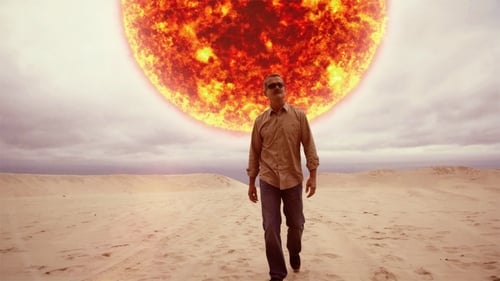
Self
What if you could get behind the wheel and race through space? We scale down the Solar System to the continental United States and place the planets along the way to better appreciate the immense scale of the Universe. See space as never before, with Mars looming over the Freedom Tower and Jupiter towering above the Lincoln Memorial. Join former astronaut Chris Hadfield - a YouTube sensation for his performance of David Bowie’s “Space Oddity” aboard the International Space Station - and his interstellar hitchhikers Michio Kaku and astronomers Derrick Pitts and Laura Danly. It’s a joyride from coast to coast - and from the sun to Pluto.
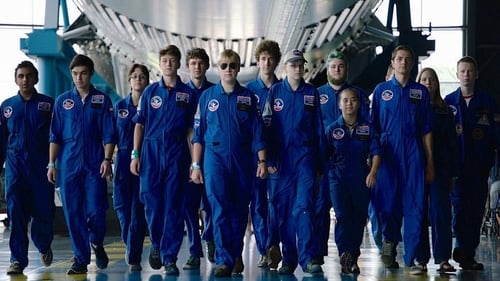
Himself
Aspiring teenage astronauts reveal that a journey to Mars is closer than you think.

Himself
In 1962, spurred by the Cold War, President John F. Kennedy famously made the bold proclamation that NASA would send astronauts to the moon by the end of the decade, not because it was easy, but because it was a challenge. The Space Race inspired a generation to pursue careers in science and technology, but as the balance of world power shifted, interest in space exploration declined. "Fight for Space" serves as an urgent call to re-awaken our sense of wonder and discovery.

Himself
On a NASA research base in Silicon Valley, there's an organization that's changing the world ... Singularity University (SU). Created by renowned futurist Ray Kurzweil and entrepreneur Peter Diamandis, with support from NASA, Google, and others, the university brings in some of the smartest students from around the world, and gives them a crash course in the most powerful exponential technologies on the planet. The students are then given a challenge: create companies that will impact a billion people within ten years. The film follows the students and their companies over five years, as they use the support of scientists, astronauts and billionaires in their attempt to make a dent in the universe.

Theoretical physicist, futurist
Learn about "white hat" hackers, the U.S. Secret Service's cyber crime division working to protect us from the risks associated with persistent connectivity.

Himself
With research that spans the work of philosophers Gilles Deleuze and Martin Heidegger to modern mythologies in which time reversal plays a crucial role — such as failed time machines, speed of light travel, and occult practices involving speech — Stracke combines science and philosophy in an attempt to defy death through cinema and the notion of time reversal.
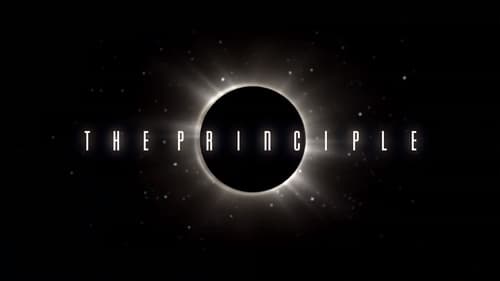
Himself
"The Principle" brings to light astonishing new scientific observations challenging the Copernican Principle; the foundational assumption underlying the modern scientific world view. The idea that the Earth occupies no special or favored position in the cosmos has launched the last two scientific revolutions - the Copernican Revolution and Relativity - and, as Lawrence Krauss has said, we could be on the verge of a third, with "Copernicus coming back to haunt us". Interviews with leading cosmologists are interspersed with the views of dissidents and mavericks, bringing into sharp focus the challenges and implications not only for cosmology, but for our cultural and religious view of reality.

Like all great science fiction shows, there are kernels of truth and nuggets of science fact scattered throughout the incredible ‘Doctor Who’ universe. In this special, we are going to explore these dynamic ‘Doctor Who’ moments where science fiction and science fact converge and mingle.

Himself
Steve Jobs was a creative and technological visionary who quite simply changed society as we know it. As co-founder and CEO of Apple Computer, Jobs ushered in personal computing to the masses, which in turn led to new innovations which completely changed our way of life - from how we do our work, to the way we watch movies, listen to music and interact socially. Discovery Channel will feature iGENIUS: HOW STEVE JOBS CHANGED THE WORLD, a one-hour documentary that celebrates these innovations.

Self (archive footage) (as Dr. Michio Kaku)
2012: Time For Change is a documentary feature that presents ways to transform our unsustainable society into a regenerative planetary culture. This can be achieved through a personal and global change of consciousness and the systemic implementation of ecological design.
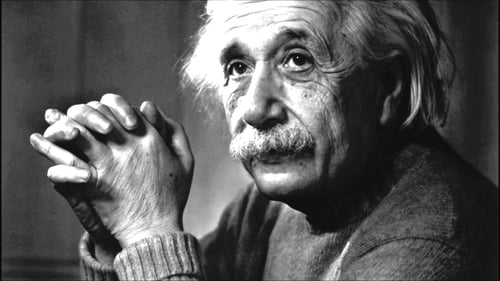
Michio Kaku
This captivating documentary from the History Channel recounts the development of iconic physicist Albert Einstein's provocative theory of general relativity. Some 200 years after the introduction of Isaac Newton's law of universal gravitation, Einstein rocked the science community with his theory, which suggests that gravity is a warping of space-time caused by the presence of matter.

What would you see and experience if the clocks rolled forward 50 years? In a unique blend of drama and science, this three-part series shows you the world of tomorrow. Will we have flying cars? Will advances in medicine help us stay young forever? What about "printing" custom-made vital organs? What will our cities look like? What will tomorrow's wars be about? Will we have robots helping around the house? Will solar power be the new oil? Supported by the world's leading scientists and research institutes, we embark on a quest to answer some of society's most fundamental questions and reveal the dramas of tomorrow's world along the way. State-of-the-art computer graphics in combination with a dynamic story line will create a world usually only seen in feature films, but with the accuracy and relevance of a documentary. This series is all about opening the window of our future based on science fact, not science fiction.

Presenter
What would you see and experience if the clocks rolled forward 50 years? In a unique blend of drama and science, this three-part series shows you the world of tomorrow. Will we have flying cars? Will advances in medicine help us stay young forever? What about "printing" custom-made vital organs? What will our cities look like? What will tomorrow's wars be about? Will we have robots helping around the house? Will solar power be the new oil? Supported by the world's leading scientists and research institutes, we embark on a quest to answer some of society's most fundamental questions and reveal the dramas of tomorrow's world along the way. State-of-the-art computer graphics in combination with a dynamic story line will create a world usually only seen in feature films, but with the accuracy and relevance of a documentary. This series is all about opening the window of our future based on science fact, not science fiction.

Himself
How secure is our future? This eye-opening documentary -- which uses computer-generated imagery to illustrate an asteroid collision, black holes and worldwide plagues, among other threats -- explores seven scenarios that could spell the end of the world. Interviews with noted scientists examine the extent of preparations for these cataclysmic events and what's being done to save future generations from extinction.
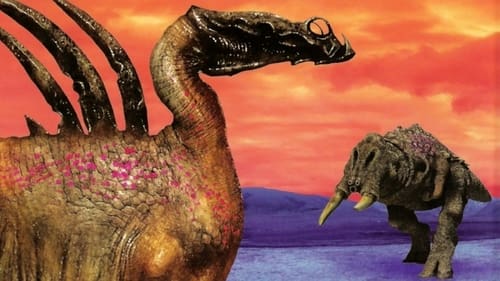
Himself
The dynamic meeting of solid science and futuristic simulation culminates in a dramatic exploration to another inhabited planet seven light years away. Alien Planet creates a realistic depiction of creatures on another world, where life is possible, if not provable, according to scientists' theories. Take this fascinating journey created by state-of-the-art animation and photo-realistic effects.

Self
Seven of today's top scientist/researchers are the subject of this humourous exploration of real people behind the white lab coats; more about what makes the tick than what they have per-se accomplished. Chosen because the subjects are the very best in their particular fields, featured are Gertrude Elion, Ashok Gadgil, Michio Kaku, Maja Materic, Steven Pinker, Karol Sikora and Patricia C. Wright. Written by Len Massaar

Himself - Prof. Theoretical Physics, CUNY (as Dr. Michio Kaku)
A philosophical flume ride through the physical, political and moral borders that inhibit the free movement of people and ideas. Mixing commentary, computer graphics, dramatizations, and investigative journalism, Borders probes the unsettling paradoxes behind immigration, drugs, Star Wars, and other topics.

What if we could find one single equation that explains every force in the universe? Professor Michio Kaku explores how physics could potentially shrink the science of the big bang into an equation as small as e=mc2. Physics powers every electronic device in your living room, underwrites every technological breakthrough, and thanks to advances in string theory, could allow us to escape the heat death of the universe, explore the multiverse, and unlock the secrets of existence.



















